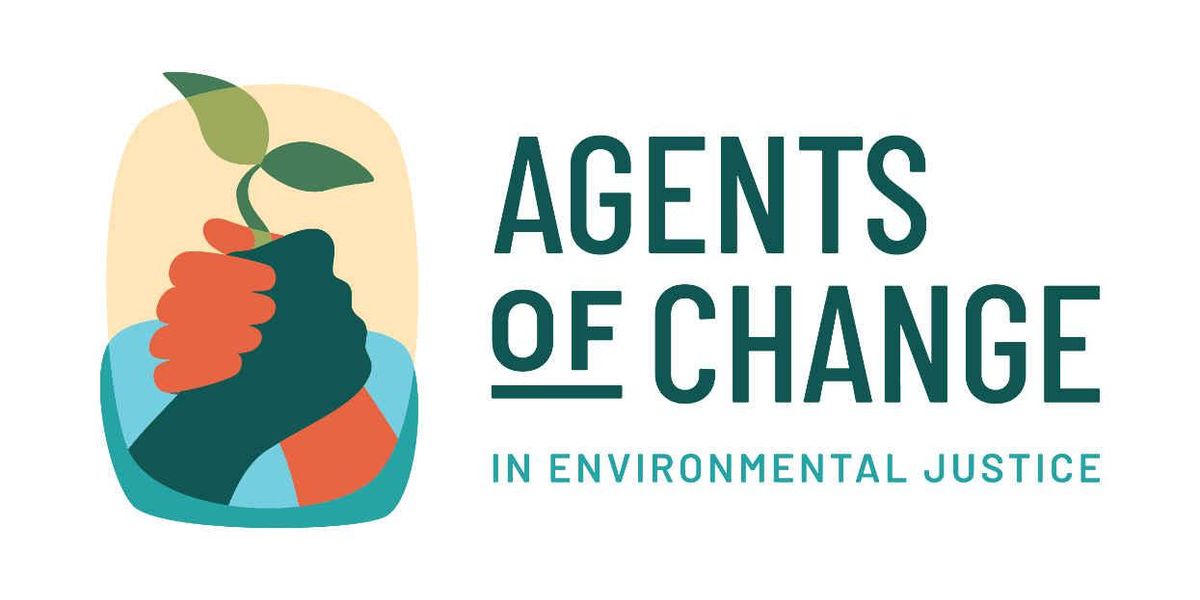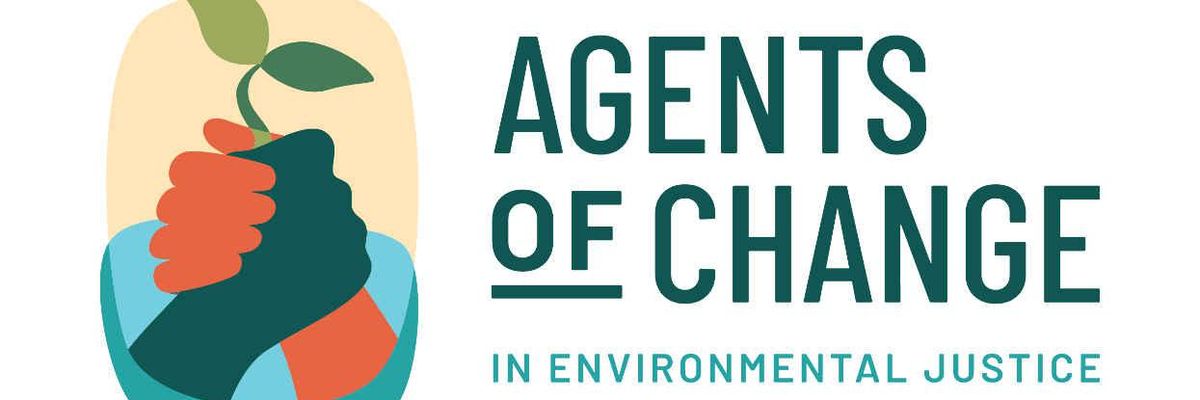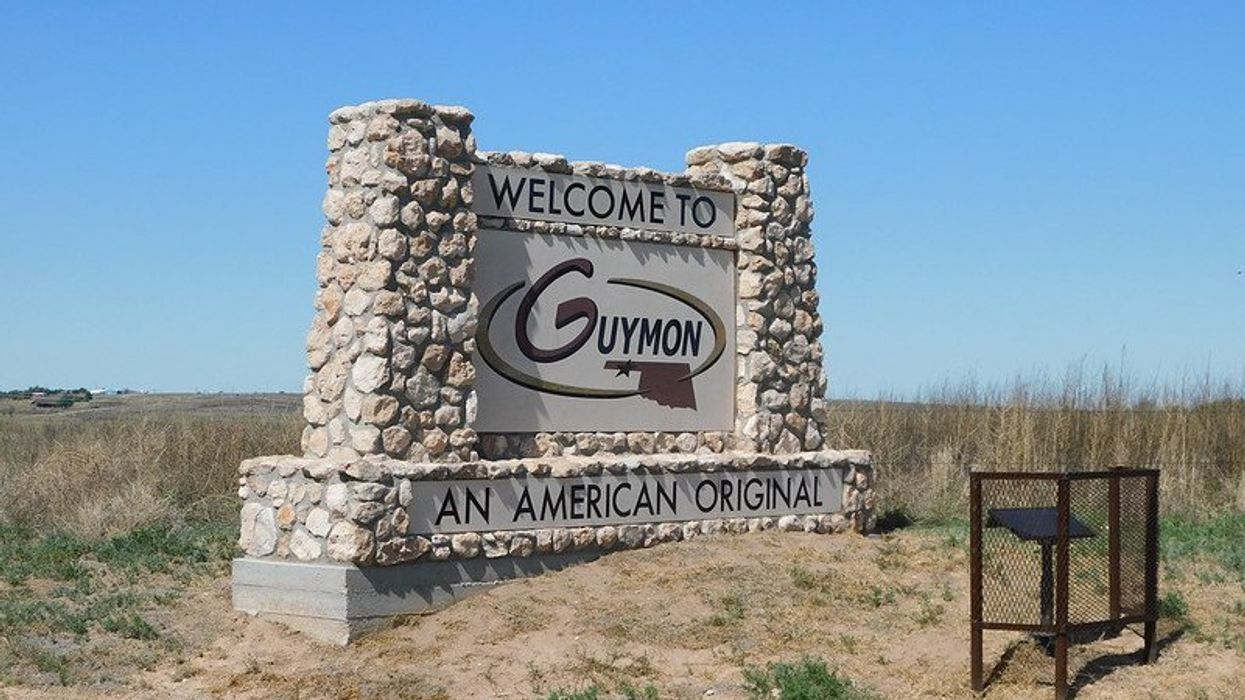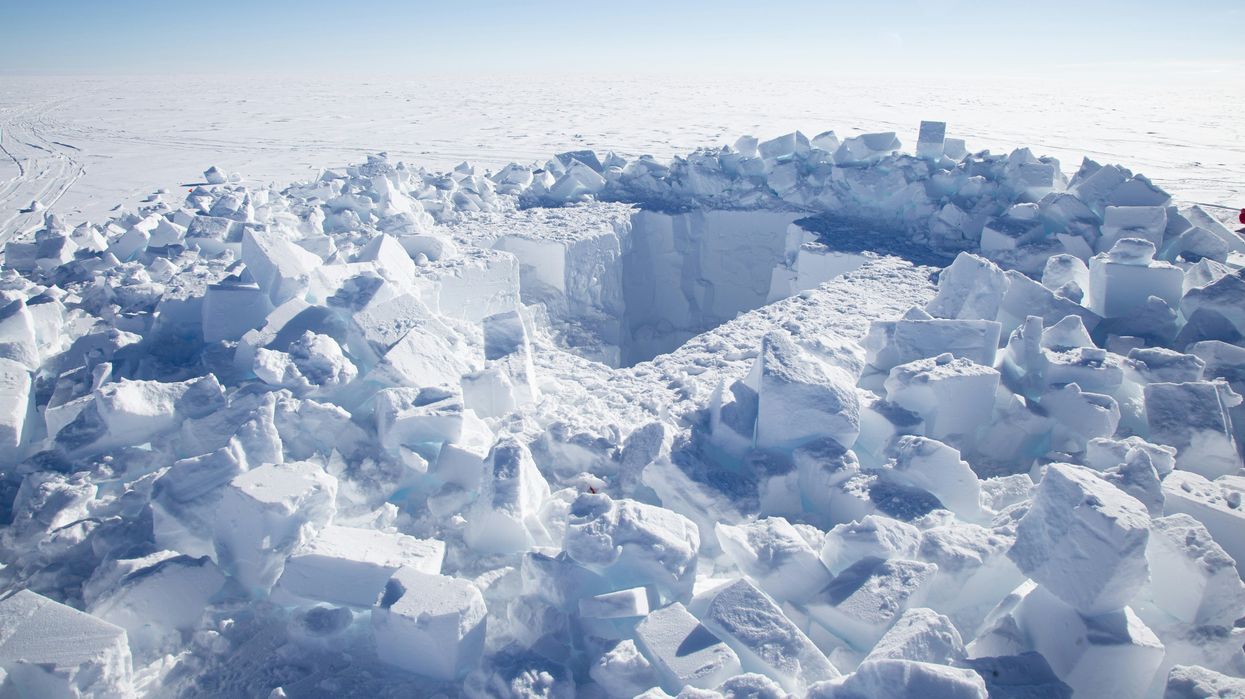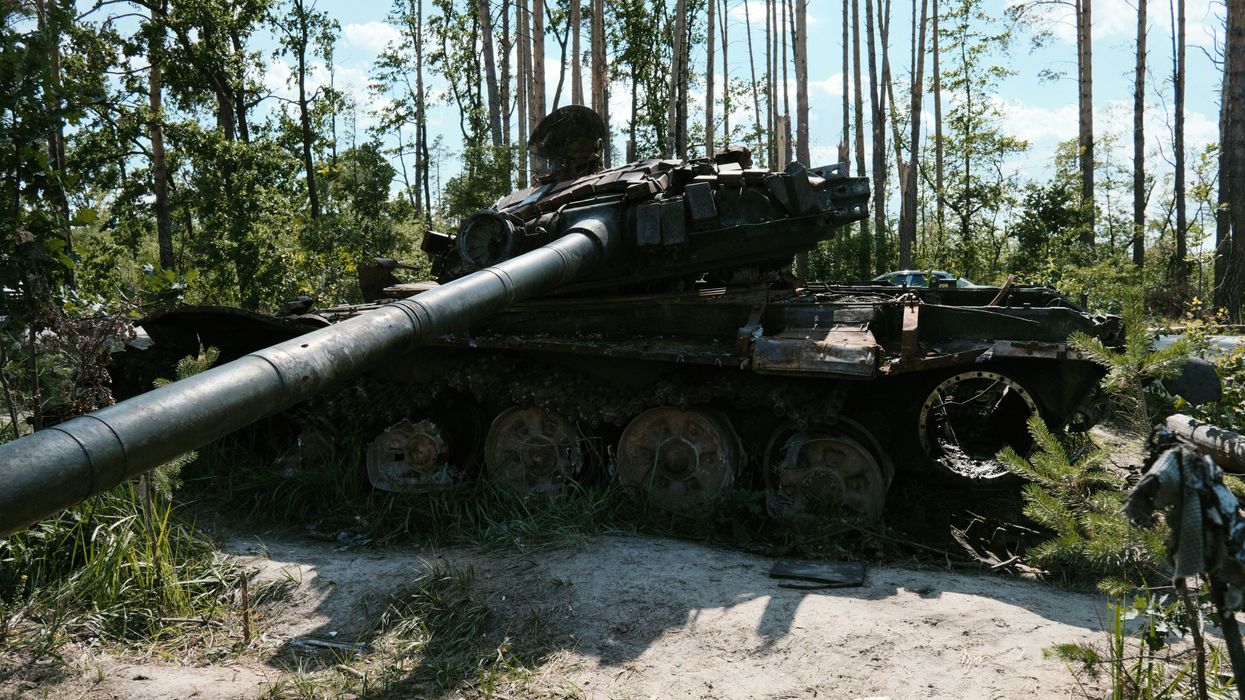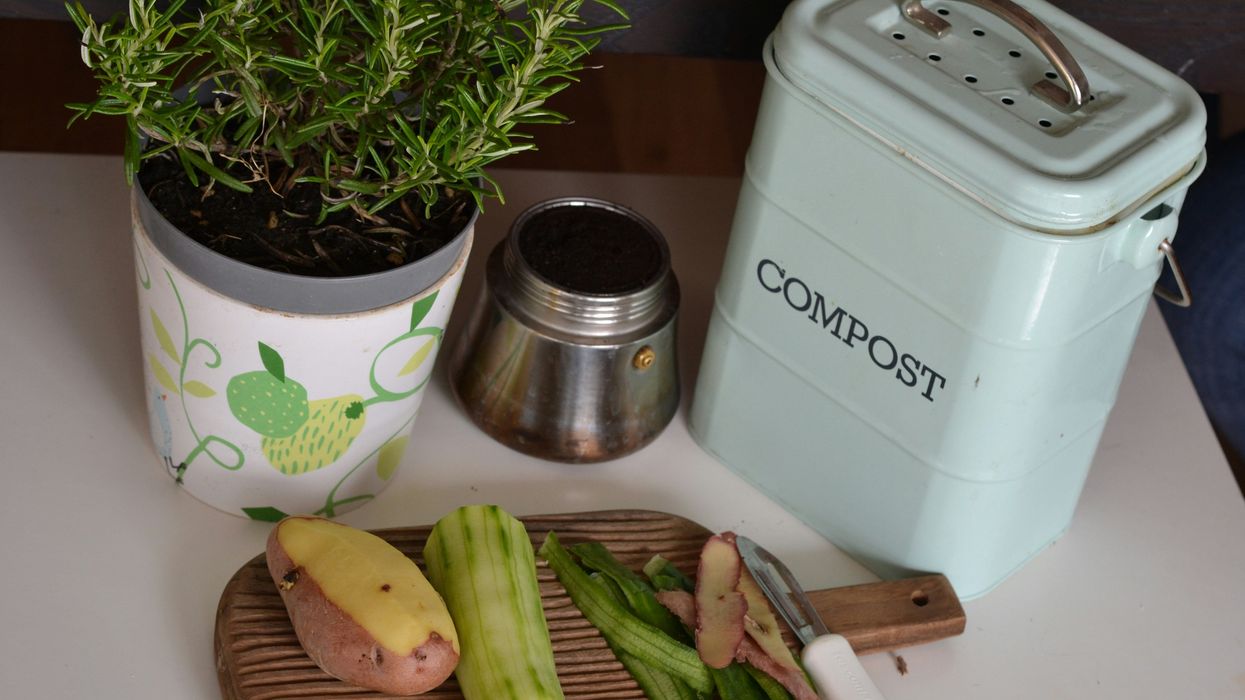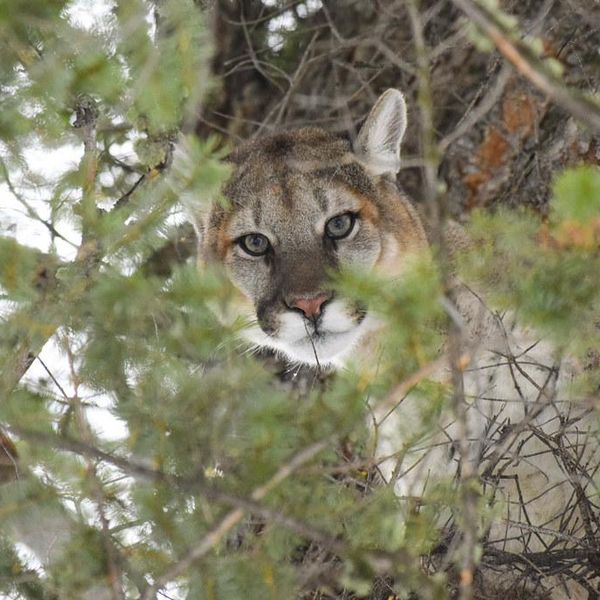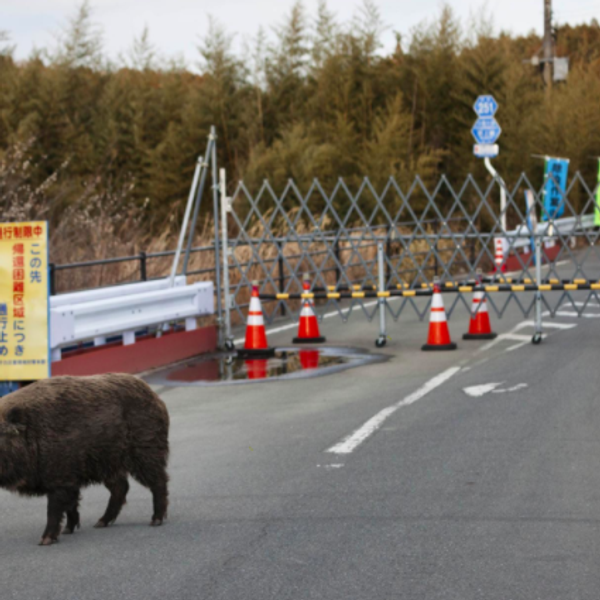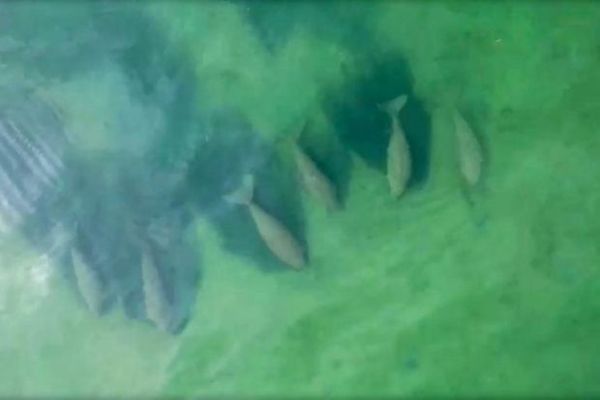Theresa Guillette joins the Agents of Change in Environmental Justice podcast to discuss her research on alligators and fish as sentinel species for environmental health, and how PFAS are moving through our ecosystems.
Guillette, an environmental scientist at Arcadis and former Agents of Change fellow, talks about her love of being outside from a young age, pushing for diversity in outdoor and nature access, and what it looks like to actually catch and take samples from an alligator or crocodile.
The Agents of Change in Environmental Justice podcast is a biweekly podcast featuring the stories and big ideas from past and present fellows, as well as others in the field. You can see all of the past episodes here.
Listen below to our discussion with Guillette, and subscribe to the podcast at iTunes, Spotify, or Stitcher.
Transcript
Brian Bienkowski
Alright. Today's guest hanging out with me is Dr. Theresa Guillette an ORISE postdoctoral research associate at the Center for Public Health and Environmental Assessment at the EPA in Research Triangle Park, North Carolina. Guillette, a former Agents of Change fellow, talks all about her research on alligators and fish, a sentinel species for environmental health, and how PFAS are moving through our ecosystems. She also talks about her love of outdoors from a young age, which I can so relate to. Enjoy.
Alright, I am super happy to be joined by Theresa Guillette. Theresa, how are you doing today?
Theresa Guillette
Doing well, thank you. It’s a little bit cold, but I guess I'm just getting used to winter.
Brian Bienkowski
Yes, I know winter is upon us. Well, when this when this broadcasts it'll probably be the middle of winter. But yes, it is. It is getting to be winter here where I'm at too, and where are you at?
Theresa Guillette
I am in Research Triangle Park, North Carolina. So I don't quite have your winters. But still, coming from Texas, pretty cold for me.
Brian Bienkowski
Yes. So Research Triangle Park, remind me, is that Durham, Raleigh?
Theresa Guillette
Yeah. So kind of the Durham-Raleigh area.
Brian Bienkowski
Excellent. Yeah. A lot of universities, a lot, a lot of stuff going on down there.
Theresa Guillette
Oh, yeah. It's a great hot spot for toxicological Research with the NIH is right here, and the EPA as well, and a lot of biotechnology companies and industry as well. So it's a great spot for research.
Brian Bienkowski
Yeah, excellent. And I want to get into some of your research. But I want to start, I want to go way back for a little bit here. And you recently published an essay for us about access to outdoor spaces for young people of color. And you mentioned fishing with your dad and hiking and camping and I can really, I can really relate to that. And just kind of a general love for things outdoors. So tell me a little bit about your upbringing and what role these, these outdoors played in shaping you.
Theresa Guillette
Yeah, so I come from a family of three girls. I think my dad really wanted a boy. So we grew up kind of as tomboys you know, going to sports games, going camping, going fishing. My two other sisters got really into sports, but I got really into like hiking and just generally being outdoors. They couldn't stand fishing, but I was always the one to say “Hey, Dad, let's go.” Funny story, when I was a kid actually going out for the first time deep sea fishing, I think my dad probably didn't want to tell my mom about this story when I was younger, because we were one of the only boats to go out. There was a big storm and probably like eight or nine foot swells. And we were the only boat to go out and we all got sick just horribly sick, and coming back in I'm pretty sure my dad, you know, made it seem a little less intense than it was.
Brian Bienkowski
There is a, there is a different sickness when there’s sea sickness. It is that is such an awful feeling.
Theresa Guillette
You know, it's the one and only time I've ever been seasick in my life. And I don't know if it's, you know, starting out younger and then just being exposed to that and being fine for the rest of it. But it was definitely a memorable experience. I caught my first big red drum though. So that was exciting.
Brian Bienkowski
That is very exciting. I am from the Great Lakes so I got sick one time. We don't have to talk about seasickness the whole time. But I got sick one time on a salmon boat and it was because I went underneath in the cab, the cabin. I was a young, pretty young boy at the time and couldn't see shore anymore. And I think that's, that's what did it. But what fun, so would this be the Gulf of Mexico deep sea fishing?
Theresa Guillette
Yeah, right out of, of Corpus Christi, Texas.
Brian Bienkowski
Awesome, very cool. And so skipping ahead a little bit, as a Mexican American, you said in your undergrad career, you found a lab that had two Hispanic graduate students. And you said without them, you probably wouldn't have applied to graduate school, which I found kind of fascinating. Can you tell me how and why this kind of diversity within the lab was essential to your growth, and even wanting to pursue, you know, even higher education?
Theresa Guillette
Well, I think, you know, going to UTSA, whereas when I did my bachelor degree, yeah, I had a lot of professors that were older white guys, didn't really see a lot of diversity in, in established professors there, or even, you know, some major researchers. And so going to a lab and seeing these graduate students, and having them really take me under their wing, as just this little undergrad that had no idea what I was doing in the lab, just gave me hope. And just, I guess you could say that it could be done. I guess, I came from a family of no scientists. Everybody was either working for a company or doing something computer related, IT. And so I never really got exposed to science in general, other than just kind of my own curiosities, and getting this exposure really early on to these graduate students to give me a little bit of boost of confidence to say, like, “Hey, you can do it.” And not just the “Hey, you can do it" attitude, but the like, these are the steps and the processes to getting there. This is how you break it down. Because right, I think everything really seems overwhelming at first when you get into it. And it's really how you approach a problem that it gets smaller.
Brian Bienkowski
And so your undergraduate, you were in a lab, what were you studying?
Theresa Guillette
So I was actually studying way different for what I am now. I was doing anthrax research. We were looking specifically at how mutations in certain cells could either have cells be more or less pervasive, to anthrax, so long distance from where I am now.
Brian Bienkowski
And just to tie it back to you know, childhood in the outdoors, I mean, did you, was science something that you were interested in, just kind of hiking around and seeing bugs and birds and dirt and soil? And when you got to undergraduate, you said “hey, I have to get in the lab,” or was that, did that come later on?
Theresa Guillette
No, I actually started out as a music major. And then I had one biology class and one biology teacher that just really, I don't know, set my curiosity on fire. And it just kind of grew into this thing of burning questions that I just wanted to ask, more and more and more. And I had thought, you know, not really coming from a background of knowing a lot about science. I thought that you had to go to med school, you had to do this, like that was the path forward. So I did a summer research experience for pre-med students. And once I got into the lab, I haven't been able to get out.
Brian Bienkowski
What kind of music did you play?
Theresa Guillette
I was actually a percussionist. So I used to play snare drum, bass drum, a little bit of xylophone, some marimba, a little bit all over.
Brian Bienkowski
That's awesome. I play the mandolin, which is ironically kind of a percussive instrument in a bluegrass setting. I played bluegrass music on the mandolin and I play pedal steel guitar and acoustic guitar. I got all kinds of instruments around. So that's very cool. I hope you still play.
Theresa Guillette
A little bit, not, not too much anymore. I am trying to get better at piano because I first started off with piano like very, very young. And I'm just kind of getting back to it now.
Brian Bienkowski
Awesome. I'm sure you have plenty of free time to dedicate to the piano.
Theresa Guillette
Haha, yeah, in all my free time.
Brian Bienkowski
So another question on this, you know, the topic of identity comes up a lot on here. And you said that you found a mentor in graduate school that had spent some time in Mexico. And you said he helped to reaffirm the richness of your background. Can you tell me a little bit about this and why it took you a while to gain this kind of confidence in your identity.
Theresa Guillette
Yeah, so growing up, um, my parents, my mom's specifically who is the major breadwinner in our house. She never wanted us to learn Spanish. She never wanted us to, quote unquote, “act Mexican” or anything like that. It was, it was very much, she told us from a young age: You live in a white man's world, talk like them and you'll go far. And so I think for a large part of my childhood and going into the professional setting, like, I really hid who I was. And it wasn't till graduate school that I began to understand that like I could embrace this culture and this side of me and really get to know it in a way that I haven't really before. And that was really due to my mentor, my first mentor, Lou. He, he spent some time doing a lot of field research in Mexico and is in his early, in his early life, doing some lizard field work. And he just had a love for Hispanic culture and liked to talk to you about it. And I'm like discussing a couple of these things. And so really, in my conversations with him, getting to know more about myself and getting a little bit more curious about my heritage growing up kind of led me to be confident in who I was.
Brian Bienkowski
And what was that researchers name?
Theresa Guillette
That was Lou Guillette.
Brian Bienkowski
Lou Guillette. Oh my goodness. So Lou Guillette, who is now deceased, am I right?
Theresa Guillette
Yeah, yeah.
Brian Bienkowski
Yeah. So Lou was friends with Pete Meyers, who is the founder of EHN, so…
Theresa Guillette
I've actually taken Pete Myers out alligator catching before.
Brian Bienkowski
Well, how about that? Yes, small world. We're, we're probably getting in the weeds for listeners here. But yes, Lou Guillette is a giant in the field. And it is so good to hear that he touched your career early on. That's, that's very cool.
Theresa Guillette
Very much so. He's now my father. Well, my father-in-law.
Brian Bienkowski
Oh, how about that? Well, it, the connections keep growing. Very cool. So maybe, maybe that was the moment, but I've been asking everybody, what is the defining moment, or event that shaped your identity up to this point.
Theresa Guillette
So that was, I would say, graduate school definitely helped me find my identity a little bit more. Um, actually, this was another Lou moment, right? He was so impactful to so many people. And I grew really close to him before he passed. One of the most defining moments that I can remember, though, was on a plane trip to Africa. So about a 17 hour plane trip, getting stuck right next to your major PI at the time, and just kind of talking for hours while trying to fall asleep. Really, I think the imposter syndrome hit me hard during that flight, right? Because I was, I was, I won a grant to go over there. And it was my first major project as a graduate student. And I was so completely overwhelmed and nervous and wasn't sure if this was going to work out. And I remember talking to him, and just having this moment of him saying, sometimes you have to take a leap of faith in yourself. Sometimes you just have to, to know that you've done everything that you can, you’ve put all the research hours in, and you've, you've prepared as best you can. And sometimes you just have to jump. And that was really impactful for me. I think it's really defined who I am as a researcher and knowing that I'll do the best I can to prepare, but sometimes you just got to ask the question.
Brian Bienkowski
Yeah, what, what excellent advice. And I feel like it's so apt for so many different scenarios in life where sometimes you just have to, you just have to do the thing, even if you don't feel fully prepared and just know, have some confidence in yourself? Well, speaking of music, it's like getting on stage, you just have to, you've put in the practice, you just have to go up and do it and put yourself out there. And I know, in those kinds of, some of those settings, it just, there's such a gratifying feeling when you're done when you're out of your comfort zone like that.
Theresa Guillette
Oh, absolutely. I think that, that trip in general was just so transformative for me, because it got me to really be more adaptive as a researcher, right? Like if you go to a field site, and then quickly realize like, oh, there's no electricity here, or there's no this or that. What do I do? I forgot this. How do you creatively think of solutions to those problems, is something that I have used many, many times.
Brian Bienkowski
Yeah, I bet. So you've done some really cool work, including with, well, you mentioned alligators, crocodiles. So tell me how you got into working with crocodiles and alligators, and what your research in graduate school found out about their health?
Theresa Guillette
Yeah, so, I actually had no idea I'd be going into alligator and crocodilian research in general, when I started graduate school. I was really interested by natural products research, and kind of investigating how things within nature we could use to create better pharmaceuticals for us. But then on the flip side of this when I met Lou, that all changed, because it was kind of like, well, did you think on the other side of, there are things in our environment that actually can do as health, uh, can harm our health. And so in a way, studying those can help us understand preventative measures for the future, like, what's happening and what's in our environment that's actually causing us harm. And I think using the, using the alligator and the crocodilian as a sentinel model for human health has been really transformative for me because it's not a mouse, right, like it's not perfect in any sense of the word. It's not a model organism. But it is something that's long lived within our environment. And it's been there for millions of years and will continue to be there. So we can learn a lot by studying their biology and how they're influenced by the environment.
Brian Bienkowski
So in graduate school, what were you trying to determine about their health? Or what were you, what kind of pollutants were you looking at?
Theresa Guillette
So I wasn't so much as looking at pollutants in general. So one of the things that I did in graduate school was trying to understand how a variety of different pollutants could maybe impact the immune and inflammation response in crocodilians. I got really interested by pansteatitis, which is a disease of fat inflammation in the crocodiles. And so, within South Africa, there's a major die off of Nile crocodiles there and our lab had started a project to try and understand that a little bit further. So I, one of the things that I worked on was trying to find biomarkers of exposure, so we could better understand using survey techniques, how pervasive this disease was, and then further look and say, okay, well, hey, we see a cluster of this, you know, downstream of certain mining operations, or this or that. So first, you know, before we do anything, we really want to understand more of the biology of the disease, rather than go and look for the bad actors, as you can say.
Brian Bienkowski
And tell me a little bit about this idea you mentioned versus say, a mouse which, which is, of course, referring to a lab where you have mice or rodents, and then there's very controlled environments and experiments. So when you're talking about a crocodile or alligator, the benefit you mentioned, is kind of their long lived, lived in this. Or just their kind of being out there in the environment. Tell me about kind of why, why they are an important creature to study.
Theresa Guillette
I think they're a nice bridge between a model system and some epidemiological or human exposure studies, where you know, you can really get deep down into the biology, of course, we can't ask them if they're sick like we can with humans. But if we can start to see some of these, as you can say, phenotypes of disease, or problems that they're seeing within the ecosystem, then we can kind of look a little bit further and say, hey, this isn't making sense, like what's going on here? In working with both mice and alligators, I can tell you which one is scarier for me. That's definitely mice. In my, in my first postdoc at NC State with the Belcher lab, I did a little bit of rodent work. And on one of my first training days, I shrieked so loudly it was not even funny. So something must be wrong with my brain where I see a mouse and I think, oh, that's scary. Versus I look at a, you know, 15 foot crocodile and be like, oh, it’s so cute.
Brian Bienkowski
Well, it's all relative, right? My, so my wife here in the upper peninsula of Michigan does, she's a wildlife biologist. And they trap, marten and fisher. And also, you know, they do work with bear and wolves and stuff. And those little marten. I don't know if you're familiar with marten and fishers, but they are vicious.
Theresa Guillette
Oh my gosh, they are. Yeah. I remember going down the Amazon with my husband on a trip one time, and seeing some of these vicious river otters. I was like, whoa, those guys are, they're crazy.
Brian Bienkowski
Right. And there's and there's, there's different precautions, of course you're taking if it's a wolf compared to something small, like a marten. And why don't you tell me about that? So when you’re, give, give the listener, walk us through a little bit when you're, when you're doing alligator crocodile research, and you show up at a field site, a swamp or a river or a lake? What, what do you do?
Theresa Guillette
Yeah, um, so just to take you through it. So we'll kind of you know, do a survey really quick to understand where we see them. They're a little bit hard to see sometimes, they're really great at hiding, especially the females. Oh my gosh, it's so hard to catch a female alligator. Um, so as soon as we see one, one of the members of the team will take a, a fishing pole, and then that'll have like a treble hook connected, which we've de-barbed to be better to take out of the animal, so we'll snag it really quick. Get it to the shore as soon as possible, put a quick dog noose over it. Then we'll get it on. Secure the jaws with duct tape, do a really quick health assessment, get a blood sample, try and get as much information that we can from both visual as well as anything else that we see. And then we release it. It's really, it can be really, really quick. So I think our fastest time has been probably like seven minutes. Some of the bigger animals, like say anything 10 foot plus, takes a little bit of time because they are very strong on a fishing pole. I mean, once they take off like, I've seen a couple of very strong men be unseated by them quite quickly. And so it can take quite a bit of muscle to get them in, but once they are, it's, it's very quick and smooth. We try to make it as painless for them as possible and as safe as it can be for us as well.
Brian Bienkowski
Right. So now you're working on studying PFAS, which I think most people have, unfortunately, probably heard of by now, and how these toxics migrate through soils and end up in our drinking water. And you're working in two kinds of PFAS-notorious communities in Parkersburg, West Virginia and Fayetteville there in North Carolina. So tell me a little bit about this, you know, why, why PFAS, why these communities, and what have you found out so far?
Theresa Guillette
Yeah, um, so I think PFAS are really, from a research perspective, they're interesting in the sense that, you know, they're quote, unquote, “emerging,” even though they're really not. They've been around since like, the 1940s. It's just research is really getting done on them within the past, like 20 or 30 years. And so one of the things that I'm really interested in is exposure in the sense of like, how, how our community is exposed to these chemicals? Is it primarily through drinking water? Is it through diet? Like, all these different routes of exposure, what are we seeing? How is it getting into these communities? Because once we have those levels, then we can kind of take it back to the toxicologist and say, okay, this is what we're actually seeing in a community, both from the water and serum perspective, like what's their internal PFAS? What can you tell me about the health of this population or things that we should be looking out for if we collaborate with human health researchers?
Brian Bienkowski
Have you found anything in those communities so far, that's the, that's been surprising or that people should know?
Theresa Guillette
I think, um, especially within the Fayetteville community, one of the things that we found is, unfortunately, this community has higher exposure than our national average. So the NHANES, or kind of like these, basically, average levels of toxicological PFAS exposure within communities, we're seeing roughly double the amount, maybe a little bit less than that. And so where this is coming from and how they're being exposed, I think, is something that still needs to be determined a little bit more. But unfortunately, you are seeing higher levels in these communities.
Brian Bienkowski
Eventually, you said you'd like to investigate how PFAS impacts immune systems. And I think I've seen a little bit of research that spoke to this, especially during COVID, saying that our chemical exposures could be exacerbating our, our impacts to COVID and other, other diseases. So what do we know about PFAS and the immune system right now? And what would you hope to find out?
Theresa Guillette
So, the National Toxicology Program has actually concluded that two PFAS in particular, PFOA or C8, and PFOS so perfluorooctanesulfonate, are presumed to be immune hazards to humans based on this large weight of evidence in both human and model organism exposure. So we know that these two compounds in particular are immune hazards. What we're seeing in the environment, especially within the North Carolina environment, are that alligators that are living in highly exposed areas actually have some altered immune health compared to alligators living in less exposed areas. And so we're seeing almost like an autoimmune phenotype in the alligator which was really quite surprising to us and something that gave me a lot of pause in general. Just because alligators are, like they have better immune systems than us. I've seen, I've seen alligators down in Florida like having their jaws bit off or having like, like tails completely bit off and then the next day, you know, it's almost healed over. It's like, it's, they have incredible immune systems. Like, pharmaceutical companies have been trying to develop antibacterial medications from them, from their blood for, you know, a couple of decades now. So when something can affect their immune system, I think it really, it really brings into perspective that it can be affecting us as mammals that don't have quite a good immune system as them.
Brian Bienkowski
I wonder why their immune systems are so good? Is it because they're just swimming in swamps and exposed? It's like when your grandma used to say you got to play in the dirt to build up your immune system? I wonder if there's, what if there's something to that?
Theresa Guillette
Yeah, yeah, I completely agree with you. I think, you know, having evolved for, you know, a couple hundreds of centuries, they've just become this really perfect predator and perfect organism within their environment. And so they're able to live through quite a bit of things and still come out kicking. So they're masters of evolution, and we're just kind of learning.
Brian Bienkowski
So when people hear that, say, crocodiles or alligators have immune system impacts from PFAS, what can we draw to humans? I know they're obviously, we are different species. But does it, is it a cause for alarm, it sounds like to you maybe it is. And how much can you draw when you're talking about different species like this?
Theresa Guillette
Yeah, you know, I don't I don't think you can make this one to one comparison. Right? Because like, I'm obviously not an alligator. Although sometimes I wish I was. But I think when it's, when you start seeing multiple lines of evidence, so this is impacting an alligator, this is impacting a fish, this is impacting a bird, this is impacting other mammals within the system. I think it, it really, we're not outside of our environment. We're a part of our environment. And so by taking Rachel Carson's advice, and just listening to what's going on around us, we can really understand that, hey, let's, let's see what's going on at a at a better level here.
Brian Bienkowski
And also, just from an ecosystem standpoint, if they are being impacted by these chemicals, that's bad in itself. Even if we don't make it about us, if it's just affecting their species. That is bad, too.
Theresa Guillette
Yeah. And I think that's, that's one thing that I've really loved working on within my career so far is that it doesn't always have to be human health related. You know, I think we're coming to a better understanding now that like, we need to get on top of this biodiversity crisis. And whatever we can do to help that going forward, we need to.
Brian Bienkowski
So you’re focused now in Parkersburg, in mostly Fayetteville, but PFAS, of course, is a nationwide problem. I know where I live here in Michigan, there are a lot of sites, a lot of problems. So tell me a little bit about how your work could help other communities outside these areas, including how it could address some of the environmental justice implications of PFAS exposure.
Theresa Guillette
Yeah, so um, while I was doing my ORISE postdoc with the EPA, I was tasked with kind of developing this national fish database for anglers, such as myself, to be able to basically map out fish PFAS within the United States, look at their levels, and create a public database for people to be able to look through and say, like, alright, I live in this city there are these specific detections of PFAS within these specific fish. Are there any tasty ones that I can eat that maybe don't? So just, I think that this kind of knowledge can really help us understand dietary exposures and bring that more into light, especially within communities that use fish as a major source of protein. And I think that happens a lot with some indigenous communities. And so having a better understanding of that, from a mapping perspective can only help us.
Brian Bienkowski
So work like that makes me think about the communication, the outreach aspect, especially trying to reach communities who say, like you said, rely on salmon runs or something, but maybe aren't reading the latest journal. Or even getting the right newspaper that this is in. So what role has science communication played in your current work and what role do you see it playing moving forward?
Theresa Guillette
I think communication is everything really. I, whenever, in graduate school, whenever I saw really prolific scientists or very, or people that were just so far ahead in their careers, one thing that I always noticed about them was that they are great communicators. They could speak to students, they could speak at a public event, they could speak to anyone really, and not dumb down the science because that's not what you want, right? Like you don't want to ever to do that to people. But I think breaking it down in a way that's not going to isolate people is really important going forward. And right, we've seen that during COVID how public communication can really either help or hurt a situation.
Brian Bienkowski
So you have already published an essay here with the Agents of Change program and I, I really liked it because I grew up in the outdoors, I am not a person of color. But I will say that the, the outdoors as a youth, to me and in my teens and 20s made me want to be an environmental journalist, made me, made me who I am, gave me a lot of values outside of just my career. It was everything to me. And I mean that. So it really touched me. And I'm wondering what that experience was like for you publishing something not in a journal, kind of for the public to digest, and how it went. What was the reaction, how it felt to have something out there like that?
Theresa Guillette
Really, really freeing. Like, I've done a lot of, I've done, you know, scientific publications and things like that, and everything very technically focused. But I think it was really nice to just talk a little bit about something personal, but also something that I feel really passionate about, and, and not have to have it be like peer reviewed in a way, right. But to just like, put it out there and just be myself. And I can't, I can't speak highly enough of being able to just be your most authentic self out there and put that out to the world and just see how it's received.
Brian Bienkowski
Excellent. Well, Theresa, this has been so much fun. And I have one last question for you. And what is the last book that you read for fun?
Theresa Guillette
Whoa, for fun, that's a good one. I read a lot of books lately, not for fun. So my, my absolute like fun book of the year that I can't stop thinking about and want the third book to come out already has been the Children of Blood and Bone series by Tomi Adeyemi. And, oh, and I just, I love sci-fi or magic stories, like a complete nerd, I'm not gonna sugarcoat that. It was just like, it was so much, it was just a good time. Like, I think that was one of the first books or series that I've just like, kind of read throughout the night again, and just like stayed up all night reading it.
Brian Bienkowski
So I have read the Harry Potter, I read the Harry Potter series last year. And that was my first kind of foray into this genre a little bit, although I'm a big graphic novel guy. So it's, I do have some, some sci-fi in there. But just give me, without spoilers, just give me a quick little glimpse into what this series is about.
Theresa Guillette
Yeah, so this is, if you like Harry Potter, you're definitely going to love this one. So this is kind of within the same realm of, of kind of like magic and like epic adventure. And so this is just, it's like magic and sorcery, but in the lens of like West African heritage. And so it's really told from multiple point of views, but it's about some siblings that kind of go through these, I guess you could say transformable adventure series of like, how they get their powers and kind of develop into like, just magical beings that are able to, like, help what's going on within their world. And, so I don't want to spoil anything because it's so good.
Brian Bienkowski
Right? No, that is a, that's a great teaser, and it does sound like as a Harry Potter fan, I might have to get my hands on that.
Theresa Guillette
Oh, you’re not gonna be able to put it down. I, yeah, if you—I think it's, it's really well written in the sense of having a lot more of West African like heritage and different, different like language dialects and everything. And so it was just a lot of fun. To be honest. Yeah.
Brian Bienkowski
Excellent. Well, Theresa, thank you so much for your time today. It's been a lot of fun.
Theresa Guillette
Thanks. I had a great time.
- What are PFAS? - EHN ›
- Investigation: PFAS on our shelves and in our bodies - EHN ›
- IN DEPTH: First-of-its kind testing points to dangers and unknowns ... ›
- PFAS chemicals—the other immune system threat - EHN ›
- Nature for all: Connecting communities of color with the outdoors ... ›

